You're tired of the hype, right?
Every day, it feels like another tech giant is launching an "AI miracle" that promises to revolutionize your business; if only you had a spare $50,000 and an in-house team of machine learning engineers.
For most small and mid-sized businesses (SMBs), that kind of technology feels about as accessible as a private shuttle to the moon.
Here's the problem: You know the promise of automation is real.
However, you've got repetitive tasks, including:
- Triage a thousand support emails
- Schedule follow-ups for every new lead
- Manage invoices
If this sounds familiar, you're not alone. The frustration of watching your competitors seemingly scale with ease while your team is stuck in manual workflows is the very thing that stops growth in its tracks. You're left feeling like you have to choose between stagnation and a massive, risky tech investment.
But what if you could bridge that gap using accessible, off-the-shelf tools that seamlessly blend with existing software, enabling you to deploy practical AI agents in a matter of weeks, not years?
The path to leveraging sophisticated AI agent development has changed, and it's no longer reserved for companies with thousands of employees (and Roketto knows exactly how to help.)
What Is an AI Agent (and Why It Matters for Small Business)

You've likely heard the term "agent" used broadly, but let's get specific.
An AI agent is simply a piece of software designed to autonomously perceive its environment (like a CRM or an email inbox), reason about a task, and take action to achieve a specific goal.
For the SMB owner, the distinction between a traditional automation script (like "If A, then B") and an intelligent agent is crucial:
- Automation Script: Requires explicit rules for every scenario. If the task deviates, the script fails.
- Intelligent AI Agent: Uses its "reasoning" capability to handle ambiguity, make decisions, and learn from its actions. It can go beyond the defined rules to solve a problem.
This difference means that AI agents bring enterprise efficiency to small teams. Instead of just firing off an email, an intelligent agent can draft a personalized response, check the CRM for the prospect's last activity, update their lead score, and then set a follow-up task for a human salesperson.
All without manual input.
Consider these three everyday examples of AI agents small business owners can deploy right now:
- Responding to Customer Messages: A support agent can read an incoming chat, determine if it's a refund request or a technical question, pull the customer's order history, and route it to the correct human team member with a summary of the issue already prepared.
- Scheduling Calls: A sales agent can coordinate meeting times across multiple calendars, handle time zone conversions, send confirmation emails, and update the lead status in your CRM.
- Managing Invoices or Leads: An operational agent can monitor an accounts payable inbox, identify an invoice, extract the key data, and initiate a payment workflow, alerting the finance manager only if the amount exceeds a certain threshold.
The core idea behind AI agent development is transforming your team from 'doers' of repetitive tasks into 'managers' of efficient, autonomous systems. This shift is what drives competitive advantage.
How AI Agents Actually Work (Without the Tech Jargon)

You don't need to be a programmer to understand the fundamental loop that powers an AI agent.
It's really just a simplified, digital version of how a good employee operates:
- Input (Perceive): The agent sees the data. (e.g., A new lead fills out a form on your website.)
- Reasoning (Analyze): The agent processes the input against its defined goal. (e.g., "Is this a qualified lead that fits our ideal customer profile? I should check their company size and industry in the CRM.")
- Action (Execute): The agent carries out a step based on its reasoning. (e.g., The agent updates the lead score to 'High Priority,' drafts a personalized welcome email, and schedules a sales call.)
- Learning (Optimize): The agent monitors the outcome to refine future actions. (e.g., "High Priority leads who received a specific email template converted faster. I should use this template more often.")
To see this in action, let's look at how a lead-follow-up agent uses this loop to qualify prospects via your CRM:
|
Function |
Action |
Benefit |
|
Perceive |
Monitors the CRM for a lead status change to "New MQL." |
No more manual checking of new leads. |
|
Reason |
Custom AI agents analyze the lead's company domain, job title, and activity log to determine if they are a good fit. |
Automatically filters out irrelevant leads, saving sales time. |
|
Act |
If qualified, the agent automatically sends a tailored follow-up sequence, creates a personalized discovery meeting link, and updates the CRM to "Sales Ready." |
Business AI agents ensure no qualified lead is ever missed or delayed. |
|
Learn |
Tracks the response rate for different follow-up messages and adjusts its sequence instructions over time. |
Improves the effectiveness of your lead nurturing process. |
This process of AI agent development creates a reliable, 24/7 "employee" that handles the critical, repetitive tasks your team dreads.
Core Benefits for Small Businesses
Why should you, as an SMB owner focused on growth, prioritize the adoption of AI assistants for business?
It boils down to four tangible advantages that directly impact your bottom line:
Time Saving
Your team spends an incredible amount of time on repetitive, administrative tasks. AI agent development automates this work, freeing your skilled employees to focus on high-value, creative, and customer-facing activities.
Cost Reduction
By automating processes like initial customer service triage or data entry, you cut back on the overhead costs associated with manual labour. This is the definition of AI automation for small business success.
Scalability
When a process is handled by an intelligent agent, it can scale instantly. Like improve your EAAT SEO ranking through generative technology or serve 10 customers or 10,000 customers without needing to hire extra staff to manage the underlying administrative work.
Consistency
Humans make mistakes. Agents don't. You'll never miss a critical follow-up email, a necessary compliance check, or a revenue-critical invoice when you have custom AI agents ensuring every process runs exactly as it should, every single time.
Real-World Use Cases for AI Agent Development

The best part of AI agent development today is that you can apply it across every department in your company.
Here are four examples of practical AI agents in action:
Sales & Marketing
Imagine having agents that screen all your incoming leads, no matter where they come from. They'll score each lead and even pre-fill your CRM with extra information, sending only the most qualified prospects directly to your sales team.
Then, your custom AI agents can handle the entire first-touch (in line with the great SEO rebrand) and nurturing process. They'll personalize messages way beyond just simple merge fields, adapting to how each lead behaves.
Finally, these automated agents will keep your contact data sparkling clean. They'll get rid of duplicate contacts, fix any data entry mistakes, and make sure every field is filled out, giving your sales team a truly reliable and accurate pipeline.
Customer Support
An agent can work around the clock, 24/7, to handle your Tier 1 support. This intelligent assistant can answer common questions, pull up relevant documents for your customers, and only escalates those really complex or emotionally charged issues to you. It's like having an extra set of hands, always available to help.
Then there's the way it handles your incoming support tickets. Every single ticket is read by an agent who automatically sorts it by how urgent it is and what topic it covers. From there, it's assigned to the human expert who's best equipped to solve that specific problem, making sure your customers get the right help, fast.
Beyond customer support, these agents can even streamline your operations.
Consider inventory: an agent can monitor your stock levels and automatically place a reorder with an approved supplier the moment an item reaches a certain low level. And when it comes to order tracking, business AI agents keep an eye on shipping statuses, proactively notifying your customers of any delays before they even have a chance to complain.
Finance & HR
First up, imagine new hires coming on board. AI agent development can guide this technology through the entire onboarding process. This means triggering all those necessary forms, scheduling their orientation, and even sending helpful reminders to the hiring manager, so nothing falls through the cracks.
Then there's invoicing, which can often be a bit of a headache. These agents can keep an eye on your project completion status.
As soon as a project is done, they'll automatically generate and send out invoices.
Not only that, but they'll also track payment statuses and send automated reminders, so you don't have to chase after payments yourself.
Getting Started with AI Agent Development

The good news is you don't need to hire a fleet of AI search developers to start building your own AI agents small business solutions.
You can start small, see a quick ROI, and scale up.
Here's your six-step practical roadmap:
Identify Repetitive or Time-Consuming Tasks
Look for the tasks that your team does every day, are prone to human error, and require basic decision-making. These are ideal candidates for AI agent development.
Choose a No-Code or Low-Code AI Platform
Platforms like Zapier or Make offer an accessible environment to link your applications and deploy the logic. More sophisticated users can use tools like n8n for greater customization and control over complex workflows.
Integrate with Existing Tools
Connect your chosen platform with your CRM (HubSpot is a common and excellent choice), calendar, chat tools, and any other mission-critical software. The agent needs access to its 'environment.'
Define the Goal and Instructions
This is the heart of custom AI agents. You clearly tell the agent what to accomplish (e.g., "Qualify leads and send a personalized follow-up") and what tools it can use (e.g., "Check the lead against the CRM's Ideal Customer Profile and use the email tool to send the message").
Run a Small Pilot (1–2 Workflows)
Start with one low-risk, high-impact workflow (like lead scoring or basic customer service triage). Observe the agent's performance and make necessary adjustments.
Track Impact and Scale Up Gradually
Measure the time saved, the reduction in errors, and the impact on metrics like lead response time. Once proven, you can confidently invest in expanding your AI agent development efforts.
Choosing the Right Tools or Partners
When you're making your first foray into AI assistants for business, the tools you select matter, as does the partner you choose.
Key criteria for your first-generation agents should be:
- Affordability: Starting costs should be manageable, often under $100/month for no-code tools plus the cost of the underlying AI model.
- Ease of Integration: The tools must connect seamlessly with the software you already use (HubSpot, Slack, Google Workspace, etc.).
- Support & Community: You need accessible help and a robust community when you inevitably run into a question.
Consider these accessible starting points for deploying practical AI agents:
- Zapier/Make + OpenAI: This combination is the easiest way to add an intelligent "reasoning" layer to simple task automation. Use Zapier to detect an event (such as a new email) and utilize the OpenAI step to "reason" and draft a response. Then, use Zapier again to "act" (send the email).
- HubSpot AI Tools: For existing HubSpot users, the integrated AI features are excellent for low-friction marketing workflows, such as personalizing content or drafting email subject lines.
A word of advice: Start with one department to show quick ROI. Don't try to automate your entire business at once. Prove the value of your first AI agent development project in sales, and you'll find it much easier to secure buy-in for finance or operations next.
Common Misconceptions (and What to Avoid)
The world of AI agent development is riddled with myths that can stop a small business from adopting a truly transformative technology.
Let's tackle the biggest misconceptions you'll hear.
|
Misconception |
Reality |
|
“AI is too expensive.” |
Most SMB tools start under $100/month, and the cost of the AI model is usage-based. The ROI from time saved usually justifies the expense within the first month. |
|
“AI replaces people.” |
AI assistants for business enhance productivity; they don't replace headcount. Agents take on the administrative load, freeing your human team to focus on strategy, high-touch client relationships, and creative problem-solving. |
|
“I need coding skills.” |
Modern no-code systems like Zapier and n8n handle the complex integration and deployment. Your focus is on defining the task and the desired outcome, not writing code. |
|
“It's risky or unreliable.” |
By implementing workflow controls and human review checkpoints—which should be a critical part of your AI agent development plan—agents stay safe and consistent. Start with low-risk tasks and build your confidence in the system. |
The most successful companies are not those that ignore these misconceptions, but those that overcome them by focusing on practical AI agents that deliver verifiable results.
AI Agent Development is an investment in process excellence, and with clear steps and transparent expectations, it becomes one of the most reliable competitive differentiators available to small and mid-sized businesses today.
AI Agent Development Done Right!
Ready to stop wasting resources on manual admin and start building a predictable, AI-powered system that drives measurable revenue?
Schedule a 30-minute strategy call with us to map out your first AI agent development project. We're the partner that specializes in bringing enterprise-level AI automation for small businesses to your bottom line.
Contact us to find out more.

Ulf Lonegren
Ulf Lonegren is CEO and Co-Founder of Roketto, where he has led digital marketing strategy for over 15 years. With extensive experience in both traditional SEO and emerging AI search optimization, Ulf has guided hundreds of SaaS and ecommerce companies through major search algorithm updates and platform shifts. His expertise spans from the early days of Google's algorithm changes through the current AI revolution, giving him unique insight into what actually drives sustainable search visibility. Ulf's approach focuses on fundamental optimization principles that adapt to new technologies rather than chasing trending acronyms, a philosophy that has helped Roketto's clients achieve measurable growth across multiple search paradigm shifts.











2.png)
2.png)









